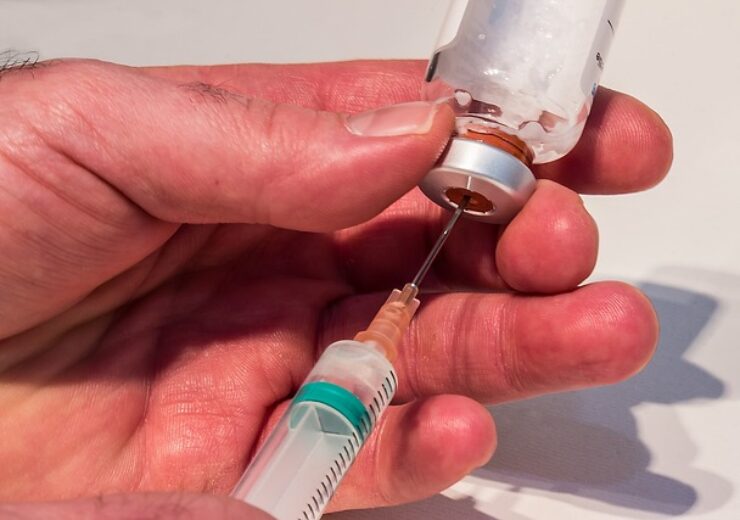Tecvayli is an off-the-shelf, subcutaneous therapy, indicated for subcutaneous administration for the treatment of relapsed or refractory multiple myeloma in adults, who previously received above four lines of therapy

Tecvayli is administered as a subcutaneous treatment. (Credit: Myriams-Fotos from Pixabay)
Janssen Pharmaceuticals, a subsidiary of Johnson & Johnson (J&J), has received the US Food and Drug Administration (FDA) approval for Tecvayli (teclistamab-cqyv) to treat a type of multiple myeloma.
Tecvayli is a bispecific T-cell engager antibody, indicated for the treatment of relapsed or refractory multiple myeloma in adults, who previously received above four lines of therapy.
Administered as a ready-to-use subcutaneous treatment, the drug activates the immune system by binding to the CD3 receptor and the B-cell maturation antigen (BCMA).
The FDA approved Tecvayli under its Project Orbis initiative, and continued approval may be expected based on clinical benefit from confirmatory trials, said Janssen.
Janssen Research & Development global oncology therapeutic area head Peter Lebowitz said: “Today’s achievement, which marks an important addition to our diverse and growing oncology portfolio, strengthens our resolve to discover and develop much-needed cancer treatments for patients and physicians.
“The approval of Tecvayli, which demonstrated an overall response rate of more than 60% in heavily pretreated patients, underscores our commitment to translate science into medicines as we strive toward our goal of one day eliminating this disease.”
Tecvayli was evaluated in MajesTEC-1, a Phase 1/2 single-arm, open-label, multicohort, multicentre dose-escalation study in adults with relapsed or refractory multiple myeloma who received three or more prior lines of therapy.
The primary endpoint of the study includes overall response rate (ORR) or unacceptable toxicity.
Also, minimal residual disease status, progression-free survival, overall survival, safety, pharmacokinetics, immunogenicity, and patient-reported outcomes, among others include the secondary endpoints.
In the study, the treatment using Tecvayli achieved an overall response rate (ORR) of 61.8%, and 28.2% of patients achieved a complete response (CR).
The treatment showed an estimated duration of response (DOR) rate of 90.6% at six months and 66.5% at nine months.
The most common adverse reactions include pyrexia, CRS, musculoskeletal pain, injection site reaction, fatigue, upper respiratory tract infection, nausea, headache, pneumonia, and diarrhoea.
The most common Grade 3 to 4 laboratory abnormalities include a decrease in lymphocytes, neutrophils, white blood cells, haemoglobin, and platelets.
MajesTEC-1 Study investigator Ajai Chari said: “In the pivotal teclistamab study, we have continued to observe positive results in heavily pretreated patients with relapsed or refractory multiple myeloma.
“As a clinician and researcher, I see first-hand the human toll of this incurable disease. The approval of teclistamab, as the first bispecific antibody in relapsed or refractory multiple myeloma, is a meaningful step in helping many of these hard-to-treat patients.”
Furthermore, Tecvayli comes with a boxed warning for Cytokine Release Syndrome (CRS) and Neurologic Toxicity including immune effector cell-associated neurotoxicity syndrome.
It also comes with warnings and precautions for hepatotoxicity, infections, neutropenia, hypersensitivity and other administrative reactions and embryo-foetal toxicity, said Janssen.
